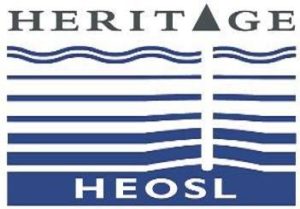WED 2015: Chevron Partners with Others to Supports Sustainable Environment
In most part of Nigeria, June is the month of the rains. It is also the month when the world celebrates the World Environment Day (WED). This June, as the world celebrated another WED, I decided to visit the Lekki Conservation Center (LCC) – 78 hectares of pristine forest in the heart of the concrete jungle called Lekki. It was a bright sunny morning when I took a tour of the LCC. The umbrella of the forest canopy swallowed up the fierce glare of the sun as I wended my way on the wooden elevated walkway into the cool interior of the center.
 Gradually, the cacophony of the Lagos traffic receded into a distant hum and I became more aware of the jungle noise. There was the screeching sound of mating birds and the hum of the trees dancing to some ancient rhythm of the wind. A monitor lizard splashed its way into a flowing stream and some monkeys dangled from a low lying creeper hanging from a tree. I took deep breaths and was almost intoxicated by the heady smell of decaying leaves, wild flowers, ripening fruits and a million other things. The song, “all things bright and beautiful, all creatures great and small….” kept on playing in my mind.
Gradually, the cacophony of the Lagos traffic receded into a distant hum and I became more aware of the jungle noise. There was the screeching sound of mating birds and the hum of the trees dancing to some ancient rhythm of the wind. A monitor lizard splashed its way into a flowing stream and some monkeys dangled from a low lying creeper hanging from a tree. I took deep breaths and was almost intoxicated by the heady smell of decaying leaves, wild flowers, ripening fruits and a million other things. The song, “all things bright and beautiful, all creatures great and small….” kept on playing in my mind.
I wondered how long this untouched piece of the earth would maintain its immaculate nature before developers would start eyeing it. The need for fast track economic growth and social development is putting so much pressure on earth’s finite resources, I mused. At the rate at which we are going, I wonder how long we can sustain our existence on terra firma as we continue to consume resources for production of goods and services at a rate that outstrip the earth’s natural replenishment rate….
Indeed, Environmentalists fear that mankind might soon annihilate themselves going by the destructive effects of our activities on earth. It is in the light of this and other reasons that the United Nations established the World Environment Day (WED).
WED was established by the United Nations General Assembly in 1972, and is celebrated every year on June 5 to raise global awareness and mobilize humans to take positive environmental action to protect nature and planet Earth. WED is the principal vehicle through which the UN stimulates worldwide awareness of the environment, and encourages political attention and action. According to the UN, WED also gives a human perspective to environmental issues, empowers people to become active agents of sustainable development and advocates multi-stakeholder partnerships in support of the environment.
From 1973, when the first World Environment Daywas held, the event has always been marked with different campaign themes and discussions focusing on environmental stewardship. This year’s theme, “Seven billion Dreams. One Planet. Consume with Care,” is apt as it further raises awareness on how the well-being of man, the environment and economies ultimately rests on the proper use and management of earth’s limited natural resources.
According to the United Nations Environment Program (UNEP), creating a sustainable lifestyle is critical for the survival of mankind because people are consuming far more natural resources than what the planet can sustainably provide and many of the Earth’s ecosystems are nearing critical tipping points of depletion or irreversible change, pushed by high population growth and economic development. Happily, some corporate bodies are heeding the call and are making Environmental Conservation part of their social investment. One of such organisations in Nigeria is Chevron Nigeria Limited (CNL), the operator of the NNPC/CNL Joint Venture. The company is one of the corporate bodies in Nigeria that have remained active agents of sustainable development and advocates of partnerships in support of the environment. The company’s commitment to environmental protection is evidenced in the various programs targeted at ensuring a sustainable ecosystem.
Nature Conservation and Education
CNL’s commitment to preserving the environment has left enduring landmarks in the landscape, including the Lekki Conservation Centre – a center of excellence in environmental research and education reserved as a sanctuary for the rich flora and fauna of the Lekki Peninsula. This 78-hectare facility is the only one of such facilities in the Lagos area and was established by CNL in partnership with the Nigerian Conservation Foundation (NCF). The NCF is Nigeria’s foremost non-governmental organization dedicated to environmental conservation and an affiliate of the World Wide Fund for Nature. In 2005, CNL established a yearly postgraduate research scholarship for PhD students in environment and conservation. In addition, CNL hosts the annual S. L. Edu Memorial Lecture to promote environmental management awareness. The company is also working with the NCF to evaluate the possibility of establishing the Niger Delta Conservation Centre.
CNL’s efforts in environmental conservation were recently applauded by various stakeholders during the commissioning of a 401 meters Canopy Walk in the Family Park at Lekki Conservation Centre. At the occasion, former Governor of Lagos State, Babatunde Raji Fashola commended the company saying; “The whole purpose of this gathering today is environmental sustainability and we agreed to follow in the footsteps of partners like Chevron because we understand that Nature doesn’t need people, rather it is people that need Nature.” In the same vein, the President of the Nigerian Conservation Foundation, Izoma Philip Asiodu also expressed appreciation to Chevron Nigeria Limited for its financial support to the Lekki Conservation Centre since 1992.
Explaining CNL’s commitment to the environment, the Chairman and Managing Director, Clay Neff noted that Chevron is happy to be part of the solution to global environmental issues, wherever the company operates, through its sound environmental management policy that supports environmental stewardship and sustainable development.
Mr. Neff also maintained that CNL has in place a company-wide health, environment and safety policy to ensure that its performance is world-class. “In Nigeria, our objective is to continue to deliver industry-leading performance in process safety, personal safety and health, environment, reliability and efficiency. We have a record of responsible environmental stewardship in areas where we operate and have also established enduring partnerships with governments, non–governmental organizations, business organizations and communities. These partnerships and efforts have been recognized within and outside the country,” he remarked.
Assessment of Environmental, Social and Health Risks
CNL has developed and is implementing processes to identify, assess, mitigate and manage potential risks to human health and the environment (including natural resources) associated with existing operations and capital projects. The company’s natural resources requirements also highlight the need to manage land and water from its operations.
Zero-flare
In response to global initiatives against climate change, CNL has developed and is implementing a strategy towards eliminating flared gas. The strategy, includes the execution of the three-phased Escravos Gas Project (EGP), the Escravos Gas-to-Liquids project (EGTL) and the West African Gas Pipeline project (WAGP) – all aimed at ending routine gas flaring in its operations, while delivering other important values for Nigeria, NNPC, and for CNL. The Agbami project was also developed for zero routine flare.
Old Land Drill Sites
CNL, with an inventory of its legacy sites that are no longer in use, embarked on priority decommissioning and restoration activities to return the sites to their initial states and subsequently transferred such restored sites to their original owners for sustainable uses.
Putting Back: Restoring the Mangrove
CNL has developed, and applied expertise in mangrove restoration through a combination of modern afforestation techniques, including natural recovery and direct planting of mangroves. The company commenced the regeneration of the mangrove vegetation with a pilot scheme involving the planting of mangrove seedlings of different species at three selected sites along the Abiteye-Escravos right-of-way. Renewed efforts are also ongoing for further restoration utilizing Nigerian Consultants with expertise in mangrove restoration.
Recognitions
The Federal Government of Nigeria, in 1999, acknowledged these efforts when the then Federal Environmental Protection Agency (FEPA) presented the company with its Environmental Achievement Award. It was the first of such awards in the industry. Similarly in 2001, the company also received the Star Merit Award on Environment from the Nigerian Environmental Society (NES) in recognition of its contributions to the sustenance of the Nigerian ecology and support for the Society’s activities.
In addition, the Nigerian Conservation Foundation has honored the company with two awards; Sustained Support for Environmental Excellence Award and Conservation Leadership Award in 2002 and 2010 respectively. In 2006, the Delta state government honored CNL with the Best Oil Company in Oil Spill Management Practices Award while the Environmental Health Officers Registration Council of Nigeria gave CNL a Corporate Good Environmental Health Practice Award for the company’s “commitment to responsible environmental stewardship” in Nigeria.
Beyond the awards, however, is the company’s commitment to remain an industry leader in protecting people and the environment as one of its core values. In the words of Deji Haastrup, CNL’s General Manager, Policy, Government and Public Affairs, “CNL is ever willing to keep on collaborating with all stakeholders to safeguard the environment.”
“At CNL, we recognize the importance of protecting the environment, sustaining biological diversity and also treasure natural resources as a fundamental social, environmental and economic resource. That’s why we are continually working to improve our processes to protect the environment and conserve natural resources.” he stated.



